The Next Generation of MOOCs and Their Impact on the Future of Teaching-Doug Schmidt
Fri, 01/31/2014 - 8:18am
The current generation of MOOCs offered by Coursera, edX, and other providers has been perceived mostly as things, such as “digital textbooks” or “educational TV shows,” usually created as a series of videos and associated digital content by a single “star” instructor and broadcast to a grateful world.
During the past several years, however, our experience producing and delivering MOOCs at Vanderbilt University and the Vanderbilt Institute for Digital Learning indicates that they aren’t merely things, but also processes, such as processes of design and production, processes of consumption, processes of evolution, and perhaps most significantly, socially-embedded processes of collaboration.
Viewing MOOCs also as “processes” is more enlightening than just viewing them as “things” since it highlights the pedagogical methods and tools that are enabling the evolution of higher education from
•Individual instructors working largely in isolation with their (relatively few) face-to-face students to
•Much larger global communities of teachers and students who share common education and learning philosophies, interests, and background knowledge.
As teachers and students gain greater experience with MOOCs, the emerging pedagogical methods and tools enabled by digital learning technologies will become more transformative. For example, teachers and students alike will attain more control over the time, place, path, and pace of learning, which will significantly impact how education is created, packaged, delivered, assessed, and priced. Digital learning technologies (initially manifested by—but ultimately transcending—the current -generation of MOOCs) will enable collaborative teaching in a manner and at a scale that simply hasn’t been practical before.
A relevant analogy is the way in which the Internet and Web have enabled virtual communities of experts (and those aspiring to become experts) to collaborate effectively on sophisticated open-source software development projects (such as Linux, GNU, Apache, and ACE and TAO). Prior to the creation of this powerful digital infrastructure, software developers tended to collaborate mostly face-to-face with colleagues from their same organization. Digital technology changed all that, even though at first many developers just viewed the Internet and Web as a means to access documents remotely or to communicate with their colleagues asynchronously via email.
As the Internet and Web matured—and as new generations of distributed development tools (such as GitHub, SourceForge, Bugzilla, and CruiseControl) and communication tools (such as Wikis, YouTube, Skype, and WebEx) emerged and were adopted—the real transformative nature of this new digital infrastructure became clear. Today, virtual collaborations among a wide range of software development communities span time-zones and organizational boundaries, support diverse business models, and have radically changed how software is developed, tested, and evolved.
The key lesson here is that digital infrastructure was transformative not just because it allowed developers to access content more flexibly, but because it enabled new, more powerful forms of collaboration.
The Role of Trans-institution MOOC Specializations
Just as the Internet and Web have enabled more effective collaborations between software developers, MOOCs are enabling more effective collaborations between teachers and students that simply weren’t feasible before. For example, Adam Porter from the University of Maryland has joined together with Jules White and me at Vanderbilt University to design and deliver a trans-institutional sequence of MOOCs offered as one of the first specializations on the Coursera platform. This specialization focuses on “Mobile Cloud Computing with Android” and integrates content that is not currently taught as a unit in either institution.
The first MOOC in the specialization—the University of Maryland’s Programming Mobile Applications for Android Handheld Systems taught by Adam Porter—focuses on design and implementation of user-facing applications. The first Vanderbilt MOOC in the specialization—Programming Mobile Services for Android Handheld Systems taught by me—focuses on middleware systems programming topics, such as synchronous and asynchronous concurrency models, background service processing, structured data management, and local inter-process communication and networking. The next Vanderbilt MOOC in the specialization—Programming Cloud Services for Android Handheld Systems taught by Jules White—focuses on integrating mobile devices with powerful cloud-based services. The final MOOC in the Specialization is a joint capstone project offered to students who successfully master the material in the earlier MOOCs.
These intentionally sequenced MOOC specializations are generating a great deal of interest and interaction. Over 165,000 students are enrolled in our Coursera specialization on Mobile Cloud Computing with Android, which rivals the number of students who have graduated from Vanderbilt during the past 140 years since its founding in 1873! It’s particularly gratifying to see students from all around the world work with each other, providing encouragement, helping solve configuration problems with Android development environments, and sharing their insights on best practices for programming mobile devices.
Inventing the Future of MOOCs
In the future, MOOCs will increasingly support trans-institution, sequenced learning engagements that flexibly assemble teachers and students from around the world who share common education philosophies and who have complementary interests and expertise on many relevant topics. These new forms of MOOCs will foster collaborations among teachers and students that span traditional inter- and intra-institution and disciplinary boundaries.
Ultimately, it’s the socially-embedded process dimensions of MOOCs (and more generally digital learning methods and tools) that will have the greatest impact on higher education. The “MOOCs-as-things” metaphor that’s predominant in the current generation of MOOCs is just a precursor to the promising changes in teaching and learning stemming from the collaborative and creative processes enabled by MOOC platforms, digital learning methods and tools, and virtual instructional communities.
As Alan Kay said over 40 years ago, “the best way to predict the future is to invent it.” I look forward to working with you to foster intentionally designed, community-based instructional collaborations in the next generation of MOOCs and digital learning technologies.
Doug Schmidt is professor of Computer Science, associate chair of the Computer Science and Electrical Engineering program, and senior researcher at the Institute for Software Integrated Systems at Vanderbilt University.
Watch an informational video here: http://www.youtube.com/watch?v=iBUyDIXiqeI&feature=youtu.be

